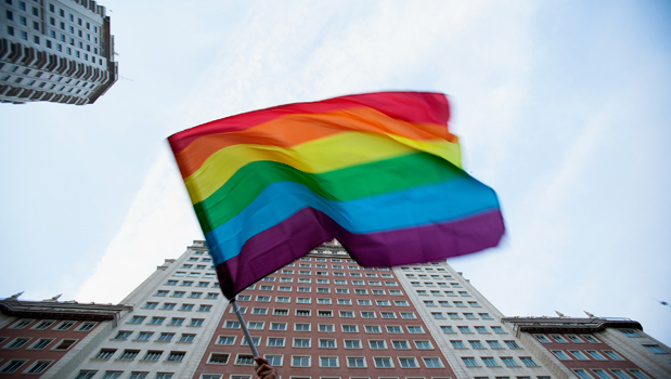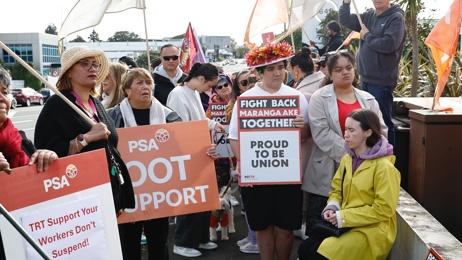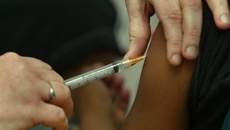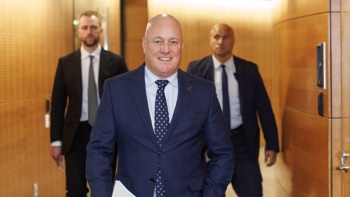
Rainbow communities are struggling to find the right health care, as the nationwide GP shortage worsens.
Christchurch youth doctor Dame Sue Bagshaw is urging more training in the medical industry on the specific health needs of the LGBTQIA+ community.
Bagshaw, a senior doctor at Christchurch's 298 Health, said there should be at least one person in every GP with the skills - but that is not the case anywhere in the country.
The not-for-profit organisation, which provides free medical care to young people aged 10 to 24 years old, has been under pressure in general to find the right healthcare for some of the city's most vulnerable due to high demand.
When it comes to gender-diverse healthcare issues, Bagshaw said a key barrier is a lack of education, and doctors being trained in an era before they had the ability to provide the appropriate healthcare.
"I think it's sometimes about confidence and not wanting to make things worse...being afraid of putting your foot in it".
A small minority in the industry are against gender-diverse patients, but 298 is trying hard to engage GPs to take an interest and have availability, Bagshaw said.
She estimates medical students spend a limited time of about six hours on rainbow youth and another two hours in clinical practices.
An Otago University spokesperson said specifying how many hours a medical student may receive on any topic is difficult and varies based on location and clinical experience.
Its Bachelor of Medicine and Bachelor of Surgery outlines a set of outcomes students are expected to achieve, including relating to specific health and well-being needs of transgender and rainbow populations.
Bagshaw points out, the trouble is packing in all the training needed - but it is important the problem is recognised as it should be part of every GPs skills and abilities.
"It is not so much there is really high demand, but I think it is mostly that so many GPs have closed their books to anybody, never mind gender diverse people".
Radio New Zealand reported in June that as many as half of the country's GP clinics are not enrolling new patients, and others are asking people to wait weeks for an appointment.
Jennifer Shields is 2IC and healthcare lead at Qtopia - a social support service for LGBTQIA+ youth in Canterbury.
A trans-woman and strong advocate for the rainbow communities, she is Pegasus Health's rainbow people health and wellbeing advisor, and sits on the Transgender Health Working Group.
She wants to see more education, guidance, and funding from the Ministry of Health and Health New Zealand, and for authorities to set expectations for all doctors to be competent in rainbow youth and transgender care.
"The situation for trans health care nationally has been such a postcode lottery. Every single DHB has different services and pathways...it will be interesting to see how that changes with the move to Health New Zealand.
Budget 2022 announced $2.184 million in funding to improve access to primary care for transgender and non-binary people in the next four years.
This includes a commitment to update national guidelines for gender-affirming health care along with advancing training and workforce development resources and programs.
The Ministry of Health also endorses the Professional Association for Transgender Health Aotearoa’s national guidelines for gender-affirming care.
Royal New Zealand College of General Practitioners medical director Dr Bryan Betty said it's an emerging area that's come to the forefront in the last two-four years.
"There are a number of GPs around the country, especially in youth clinics that are now starting to sub-specialise in gender issues".
Betty said what is most important is treatment options - especially in terms of medications and hormone modifications- are becoming more accessible.
"What I would probably like to see is access to a GP who has extra skills in this area available distributed around the country".
A Te Whatu Ora - Health New Zealand spokesperson said it is committed to ensuring overtime all New Zealanders have fair, easier access to quality healthcare services closer to home.
It is working with districts to consider how it can improve access to services, including services for gender diverse and non-binary people.
The interim New Zealand Health Plan will soon set out the first two years of action for how Te Whatu Ora and Te Aka Whai Ora will deliver health services, and will be published shortly.
In Canterbury, multiple services have been funded since 2019 - including fully funded sessions with a professional peer support worker based within a rainbow and trans-led community organisation or a private psychologist with expertise in gender affirming mental health.
Shields said agreed a lot of work had been undertaken in the region in the last five years to improve gender-affirming care.
But before then there was "no information whatsoever".
This work started at 298 Health Youth, which Shields said was the only practice people knew of as being safe and welcoming, and having some awareness of transgender health care.
But Shields highlights there is still work to be done, and Qtopia has been working to increase resources available to GPs.
She said Canterbury has a peer group of up to 15 GPs skilled in gender diversity - a small number given the size of the transgender community both in Christchurch and nationally.
Instead of having a one-stop-shop like 298 Youth Health, she wants to see funding to educate all GPs, rather than have patients seek care from one service.
"Generally, we find people are really invested in learning more, it's a really small minority of people that are just not interested in providing the care whatsoever," Shields said.
The Medical Council of New Zealand's chair Dr Curtis Walker said it strongly supports the view that a doctor’s personal beliefs should not affect their advice or treatment.
He said if a member of the public has concerns about a doctor, the council takes the matter very seriously.
Information for patients who want to make a notification about the treatment they have received from a doctor can be found at https://www.mcnz.org.nz
Take your Radio, Podcasts and Music with you









